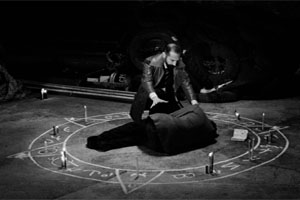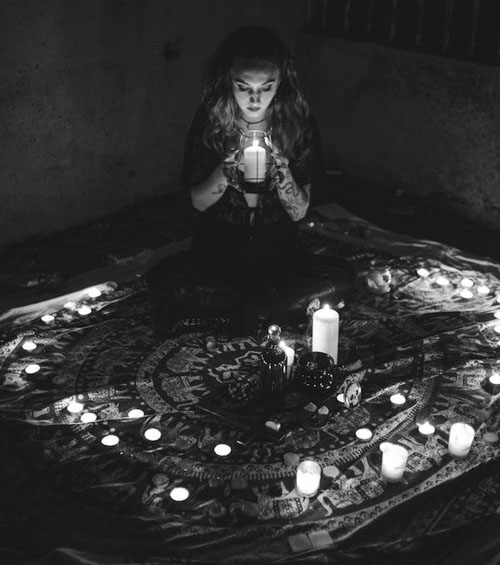 The occult refers to a broad range of esoteric practices and beliefs that are often associated with mysticism, magic, and supernatural phenomena. While the origins of the occult can be traced back to ancient civilizations, such as Egypt and Mesopotamia, its modern history can be divided into several distinct periods.
The occult refers to a broad range of esoteric practices and beliefs that are often associated with mysticism, magic, and supernatural phenomena. While the origins of the occult can be traced back to ancient civilizations, such as Egypt and Mesopotamia, its modern history can be divided into several distinct periods.
The Renaissance was a time of great intellectual and artistic awakening in Europe, and it was also a period of renewed interest in the occult. This was partly due to the rediscovery of ancient texts, such as the Hermetica and the Corpus Hermeticum, which were believed to contain esoteric knowledge about the universe and the nature of the divine.
During this time, many prominent thinkers and artists, such as Leonardo da Vinci, Michelangelo, and Giordano Bruno, were influenced by the occult. They were particularly drawn to the idea of a mystical or spiritual dimension to the universe, which they believed could be accessed through various means, such as alchemy and astrology.
The Enlightenment, which followed the Renaissance, was a period of intellectual and cultural change in Europe. It was marked by a growing interest in rationalism and scientific inquiry, which led many people to reject the occult as superstition and fraud.
However, the occult continued to be practiced and studied by a small but dedicated group of individuals, who sought to uncover the hidden secrets of the universe. One of the most influential occultists of this period was Aleister Crowley, who founded the religious philosophy of Thelema and wrote extensively on topics such as magick, mysticism, and the nature of reality.
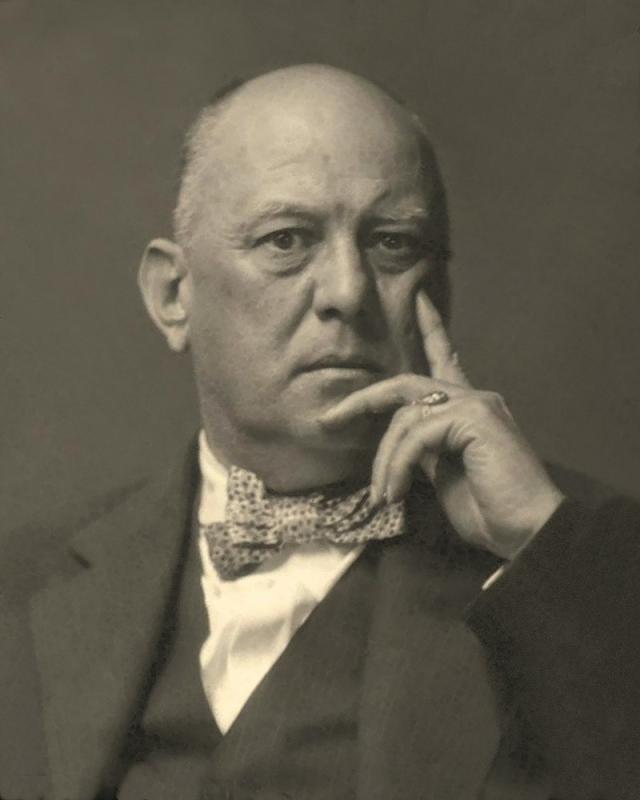
Aleister Crowley in 1925
Another factor was the increasing popularity of Theosophy, a spiritual movement that was founded by Helena Blavatsky and claimed to be based on ancient wisdom from the East. Theosophy combined elements of mysticism, occultism, and Eastern philosophy, and it had a significant influence on many later occultists, including Aleister Crowley.
The early 20th century also saw the rise of several secret societies and fraternal organizations that were based on occult principles. One of the most famous of these was the Hermetic Order of the Golden Dawn, a British organization that was founded in the late 19th century and attracted many prominent intellectuals and artists, including W.B. Yeats and Arthur Conan Doyle.
The Golden Dawn was known for its elaborate rituals, which drew on a range of occult traditions, including Kabbalah, alchemy, and astrology. Its members were also known for their study of the Tarot, a set of cards that was believed to contain esoteric knowledge about the universe and the human psyche.
Another notable secret society of this period was the Ordo Templi Orientis (OTO), which was founded by Aleister Crowley in the early 20th century. The OTO was heavily influenced by Thelema, and it emphasized the importance of individualism, personal growth, and spiritual development.
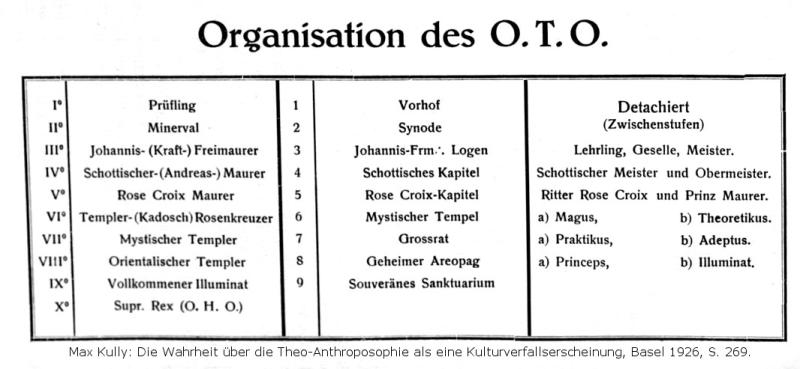
Organizational structure of the O.T.O. from 1926 (in German)
The mid-20th century saw a decline in interest in the occult, as a result of several factors. One of the most significant was the growing influence of science and technology, which led many people to view the occult as outdated and irrational.
However, the occult continued to be studied and practiced by a small but dedicated group of individuals, who sought to uncover the hidden mysteries of the universe. This led to the emergence of several new movements and organizations, such as Chaos Magick, which emphasized the use of individual willpower and creativity in the practice of magick.
The late 20th and early 21st centuries saw a renewed interest in the occult, as a result of several factors. One of the most significant was the counter-cultural movements of the 1960s and 1970s, which emphasized individualism, spirituality, and alternative forms of consciousness.
This led to a resurgence of interest in the occult, as many people sought to explore new forms of spirituality and mysticism. This was reflected in the popularity of books and media related to the occult, such as the Harry Potter series and the works of authors like Aleister Crowley and Dion Fortune.
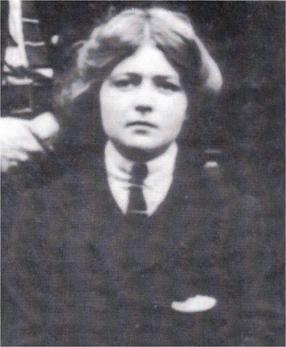
Dion Fortune as a teenager around 1905
Today, the occult continues to be studied and practiced by a diverse group of individuals, who seek to explore the hidden mysteries of the universe and tap into the power of the divine. It is also increasingly recognized as a legitimate field of study, with academic institutions offering courses on topics such as the history of the occult, occult philosophy, and esoteric traditions.
In conclusion, the history of the occult is a long and complex one, spanning many different cultures and time periods. While the occult has often been associated with mysticism, magic, and supernatural phenomena, it has also played an important role in the development of science, philosophy, and spirituality.
Despite being viewed as outdated and irrational by many, the occult continues to attract a small but dedicated group of individuals, who seek to explore the hidden mysteries of the universe and tap into the power of the divine. Whether or not one believes in the reality of the occult, its influence on human history and culture cannot be denied.



